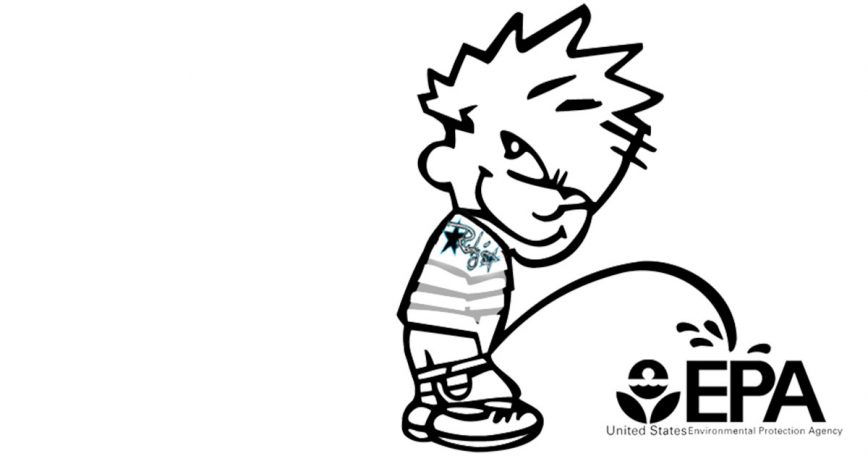Rudy’s Performance Fined $10M Over Illegal Emissions, EPA

Photo Credit – Rudy’s Diesel
Rudy’s Performance Parts Fined for Emissions Violations: What Really Happened?
If you’re part of the truck and car enthusiast world, you’ve probably heard about Rudy’s Performance Parts, the North Carolina-based shop that has long provided high-performance upgrades for trucks and diesel engines. The shop, founded in 2008, gained popularity for offering some of the best aftermarket parts in the game, ranging from full engine rebuild kits to oil change packages. But recently, Rudy’s got hit with a massive $10 million fine from the Environmental Protection Agency (EPA) for allegedly violating emissions laws. The shop’s owner, Aaron Rudolf, pleaded guilty to conspiring to break the Clean Air Act by installing and selling emissions defeat devices on over 300 trucks.
For the diesel crowd, this case strikes a nerve. After all, Rudy’s has been a go-to for serious truck enthusiasts who want to maximize performance. But the legal fallout highlights a growing clash between aftermarket modifications and strict federal emissions regulations.

While the EPA focuses on curbing air pollution, many in the performance world argue that enthusiasts are being unfairly targeted. Let’s dive into what happened at Rudy’s, why it matters, and how this could reshape the landscape for tuning shops across the country.
What Are Emissions Defeat Devices?
To understand the Rudy’s case, it’s crucial to grasp what emissions defeat devices are. These devices are designed to bypass or disable a vehicle’s emissions control systems, such as the Exhaust Gas Recirculation (EGR) system. In diesel engines, the EGR system plays a critical role in reducing nitrogen oxide (NOx) emissions by recirculating a portion of the exhaust gases back into the engine’s cylinders. This cuts down harmful pollutants but can also hinder engine performance and fuel efficiency.
Rudy’s Performance Parts, according to the complaint filed by the Department of Justice and EPA, sold and installed “EGR Delete Kits.” These kits allowed truck owners to remove or disable their EGR systems, giving their trucks a performance boost but at the cost of higher emissions. The EPA, which enforces the Clean Air Act, views these modifications as a major public health risk because they allow vehicles to emit more pollutants than what’s legally allowed. According to the lawsuit, Rudy’s sold more than 250,000 products designed to tamper with emissions controls, including defeat devices and imitation tuners that mimicked legal products.
How Did Rudy’s Get Caught?
The EPA’s case against Rudy’s Performance Parts didn’t happen overnight. The agency first requested information from the shop in 2016 about the emissions-related products they were selling. However, Rudy’s provided incomplete information, which only raised more red flags. In 2018, the EPA made another request for records, but Rudy’s claimed they didn’t keep the information the EPA sought. This evasive behavior likely set off alarm bells for federal investigators.
Fast forward to 2022, and the Justice Department had gathered enough evidence to file a civil lawsuit against Rudy’s and its owner, Aaron Rudolf. The complaint detailed how the shop had conspired to violate the Clean Air Act by manufacturing, selling, and installing defeat devices on hundreds of trucks. The company’s website and eBay listings openly advertised these illegal products, including kits designed to disable emissions systems.
To make matters worse, Rudy’s also manufactured imitation delete tuners that bypassed emissions controls. Using a laptop and specialized software, the company produced over 43,900 tuners, generating an estimated $33 million in revenue. The EPA wasn’t just concerned about the lost emissions; they were alarmed by the sheer scale of the operation. The fact that Rudy’s continued to sell and install these products, even after being on the EPA’s radar, likely contributed to the harsh penalties the company is now facing.
The $10 Million Fine: A Breakdown
When all was said and done, Rudy’s Performance Parts agreed to pay a $10 million fine. This penalty includes a $7 million civil settlement for violating the Clean Air Act, along with a $600,000 criminal fine for the installation of defeat devices on more than 300 trucks. Additionally, the shop was hit with a $2.4 million criminal fine related to the sale of imitation tuners.
The penalties are part of a plea agreement that requires Rudy’s to not only pay these fines but also to immediately stop selling any defeat devices. This means no more EGR delete kits or tuners that tamper with emissions systems. The shop must also destroy any remaining defeat devices in its inventory, cease providing technical support for these products, and notify its dealers and customers about the violations.
This settlement is one of the largest fines levied against an automotive shop for emissions violations, signaling that the EPA and Justice Department are cracking down hard on the aftermarket industry. It’s not just about the money; the message is clear: selling products that violate emissions laws will have severe consequences.
A Turning Point for the Aftermarket Industry?
For many in the car and truck enthusiast community, Rudy’s case serves as a wake-up call. Aftermarket modifications have long been a part of the car culture, especially when it comes to diesel trucks. These vehicles are often pushed to their limits, with owners seeking more power, better fuel efficiency, and improved towing capacity. Defeat devices, while controversial, have been a common modification because they offer a quick way to unlock extra performance.
But with the EPA stepping up its enforcement, shops like Rudy’s are now facing a stark reality. Federal regulations are tightening, and the penalties for violating emissions laws are getting steeper. This could force other tuning shops to rethink their product lines, especially when it comes to parts that interfere with emissions controls.
While many enthusiasts feel like they’re being unfairly targeted, the government sees it differently. According to the EPA, defeat devices contribute to significant air pollution, which poses serious health risks to communities. The agency’s Assistant Administrator, David M. Uhlmann, made it clear that the EPA will continue to “vigorously pursue criminal and civil penalties until this blatant illegal behavior comes to an end.”
Is This the End of Performance Tuning?
Absolutely not. While Rudy’s Performance Parts and other shops like it are feeling the heat, the performance tuning world isn’t going away. What we’re seeing is a shift in how companies will have to operate moving forward. With stricter emissions laws in place, the days of selling EGR delete kits and defeat devices may be numbered, but that doesn’t mean enthusiasts will stop seeking performance upgrades.
The future of performance tuning lies in innovation. Aftermarket companies will need to develop products that not only boost horsepower and torque but also comply with emissions standards. For some, this might feel like a step backward, but in reality, it presents an opportunity for the industry to evolve. We’ve already seen advancements in tuning software that optimize performance without bypassing emissions controls, and this trend is likely to continue.
Moreover, diesel trucks are not going anywhere, and neither are the drivers who love them. Whether it’s for work, play, or off-roading, diesel trucks offer a unique combination of power and versatility. The challenge moving forward will be finding ways to maintain that performance edge without running afoul of emissions laws.
The Future of Rudy’s Performance Parts
So, what’s next for Rudy’s Performance Parts? Despite the hefty fine and the new restrictions, the company isn’t going out of business. In fact, this might be a chance for them to pivot and adapt to the changing regulatory landscape. By focusing on legal, emissions-compliant products, Rudy’s could still serve its loyal customer base without risking further legal trouble.
It’s worth noting that the company built a solid reputation over the years by offering high-quality parts and excellent customer service. These core values haven’t changed, and there’s no reason Rudy’s can’t bounce back from this setback. Moving forward, the shop will likely need to rethink its approach to tuning, but the demand for performance upgrades isn’t going anywhere.
Rudy’s Performance Parts has always been a staple in the diesel community, and many enthusiasts will continue to support the shop as long as it offers reliable, legal products. The $10 million fine is a blow, but it doesn’t have to be the end of the road for Rudy’s. With the right strategy, the company could emerge stronger and better prepared for the future.
Conclusion: The Road Ahead for Enthusiasts
For car and truck enthusiasts, Rudy’s case is a stark reminder of the shifting landscape in the aftermarket performance industry. The EPA is serious about enforcing emissions laws, and shops that violate those laws will face severe penalties. But that doesn’t mean the passion for performance is dead. Enthusiasts will always seek ways to push their vehicles to the limit, and aftermarket companies will need to find new, innovative solutions that comply with emissions regulations.

